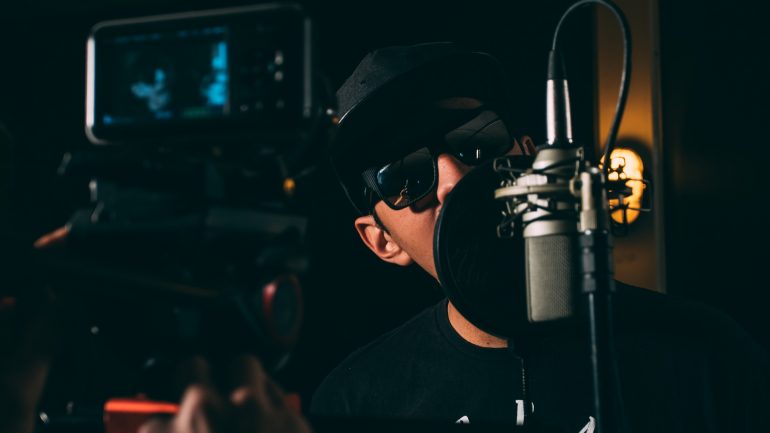So, you think it’s time to start laying down your first tracks for an album but aren’t quite sure how to go about it. You have gathered quite a loyal following on the local circuit and no matter what new tune you introduce, the fans eat it up. Now you want to take your music to a much larger audience and, since recording an album would help you get your music out there, you just feel like a few pointers would help. After all, you’ve never recorded an album before. In fact, you’ve never even laid down a single so any advice would be much appreciated. Say no more. Here are five pro tips for recording your first album that will help you do things the right way the first time around.
1. A Huge Mistake to Avoid
Before going any further, it is imperative that you avoid one of the biggest mistakes many new bands make. While releasing tunes on YouTube is a great way to introduce your band and build a loyal following, the one thing you will want to avoid at all costs is releasing a tune on social media that you intend to include on an album. The reason for this is quite simple really. Why would fans want to buy your music if they can listen for free on YouTube? It makes perfectly good sense but too many new bands do just that and then wonder why their music isn’t selling!
2. Finalise a List of Tunes You Want to Record
While you may have literally dozens of tunes you want to record, only so many can fit on an album. There was a time when 12 songs was the industry standard but then as riffs got longer, that number dropped to around 9 or 10. Also, it is suggested that you might want to ensure that the songs you do include ‘work together.’ Sometimes this means a thematic approach and other times it’s more of a musical journey. Whichever way you choose, make sure that the songs you record work well together.
For example, although your primary genre is country rock, you may also have a few originals that are R&B or hard rock. Those wouldn’t do well on a country rock album so maybe leave those aside for another release in the future. Maybe you choose a thematic approach so the entire song tells a story about love, for instance, or about heartache or loss. Just remember that the songs need to work well together and you will have an easier time deciding which you want to release this first go-round.
3. Line Up Studio Space
Finding studio space can be one of your biggest challenges in the very beginning. You aren’t signed with any labels yet so this will be what amounts to an indie release. While you want the best studio space Dalston London has to offer, you know you can’t afford some of the top end studios where the pros lay down tracks. Actually, there are amazing self-serve studios like Pirate that have all the tech necessary to produce an album with a professional sound at a fraction of the cost. With studio availability 24/7, you will have what you need to create, record, produce and release! Check their website to see if they have an available Dalston studio space.
You might even want to book studio space before actually laying down the tracks in order to get a feel for the tech in the studio as well as learning to master mixing. If you don’t have a sound engineer on your team, the guys who do the mixing at shows would be your best bet at laying down tracks in a studio. If you have the resources, you might even be able to hire an engineer for your time spent in studio.
4. Don’t Forget the Dreaded Budget!
Sometimes you will be advised to set the budget early on, even before lining up a studio and any pros like sound engineers you might need to hire. However, do you really think this is possible before pricing studio time for example? How much will that sound engineer cost and are you going to need an artist to design the cover for you? After you’ve made a list of what you will need to set down those tracks, you can talk budget. Until then, there is no way to even guess how much it will cost you from concept to release. Yes, you may still need to alter your budget along the way, but alterations are easier to finance than totally unexpected costs you might be faced with. In other words, yes, a budget is necessary but not until you can estimate a ballpark figure based on figures you’ve itemised from studio time to pros you need to hire.
5. Go Easy on Pressing/Making Copies
Here is one final mistake so many new recording artists make in the very beginning. Since you will be recording, mixing, and mastering your own album, you might get over-enthusiastic when it comes to pressing the number of copies you ‘think’ will sell. Although it’s still called pressing, the term generally refers to copies being made. Perhaps you want to sell your own albums at gigs and maybe you want to set up a site to sell them online. Remember, you probably won’t have the marketing teams at your disposal like the major labels have, so go easy pressing in the very beginning. Be honest in terms of how many you will be able to sell in the very beginning.
The first indie album is always a challenge but by following some tips laid out for you by the pros, you really can make a success of it. The point is to get your music out there while making a profit. Take the time to learn what it takes to actually produce and record an album. You will be amazed at the professional quality you are able to achieve if you take the time to do it right. These five tips should help you do just that.





